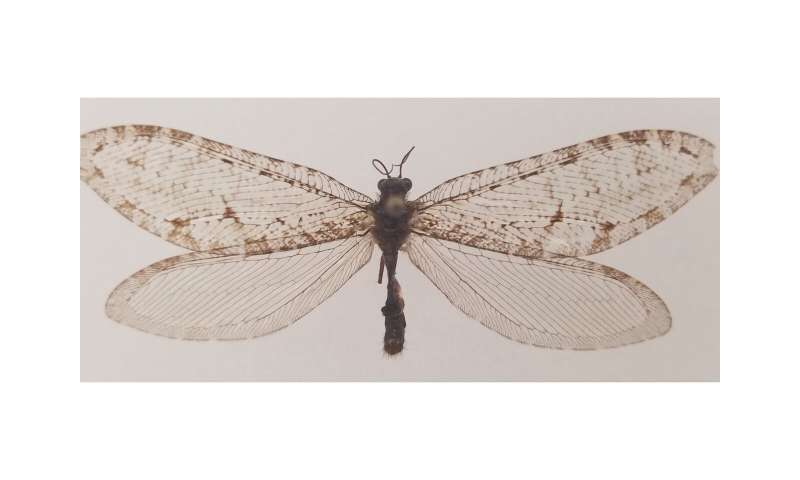Best of Last Week—Rare insect found at Walmart, new tool to detect DDoS attacks, a sweetener causing strokes

It was a good week for the biological sciences, as a team at the Institute of Botany, Czech Academy of Sciences discovered a new type of coexistence between algae and fungi—called alcobiosis, the relationship exists between corticioid basidiomycetes and algae in temperate forests. Also, a combined team from Pennsylvania State University and Mississippi State University reported that a rare insect found at an Arkansas Walmart set a historic record—it was the first of its kind observed in eastern North America in a half-century. And a team with members from the Technical University of Munich, the University of Applied Sciences, Kaiserslautern and the TUM AlgaeTec Center, all in Germany, found a dozen exotic bacteria that were able to passively collect rare earth elements from wastewater—possibly helping to bring their price down.
In technology news, a team at Institut Polytechnique de Paris, Telecom Paris, developed a new AI-based tool to detect DDoS attacks. And a combined team from the University of Zaragoza and the Aragon Institute of Engineering Research proposed a new machine-learning approach to improve robot navigation in crowded environments. Also, a combined team from the University of Arizona and Sandia National Laboratories developed non-reciprocal acoustoelectric amplifiers for very high frequency sound waves—a development that could lead to improvements in radio-frequency electronics devices. And another combined team, this one with researchers from Lawrence Berkeley National Laboratory and the University of California, Berkeley, developed simple techniques to quantify Li plating, thereby speeding up the charging of lithium-ion batteries.
In other news, a team at Stanford University suggested that homeowners could soon be installing smart toilets with sensors that examine urine and feces—ideally, such a toilet could spot diseases or pathogens and send alerts to a smartphone. A team there is in the process of developing one. Also, a multi-institutional team created a geological model of the Earth going back 100 million years. And finally, a team at the Cleveland Clinic found an association between erythritol, a popular artificial sweetener, and an increased risk of heart attack and stroke.
© 2023 Science X Network